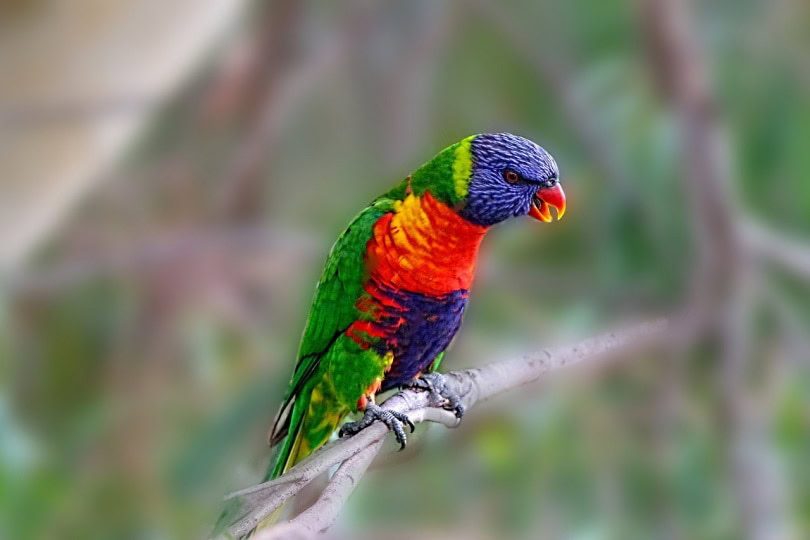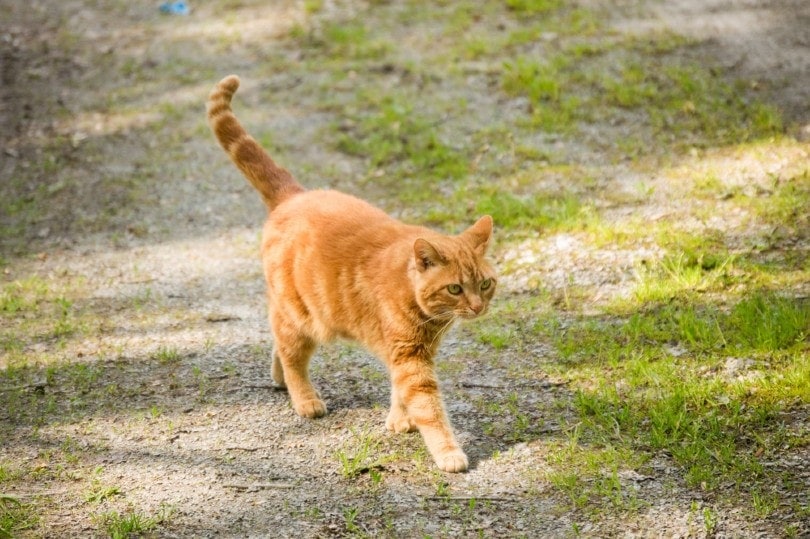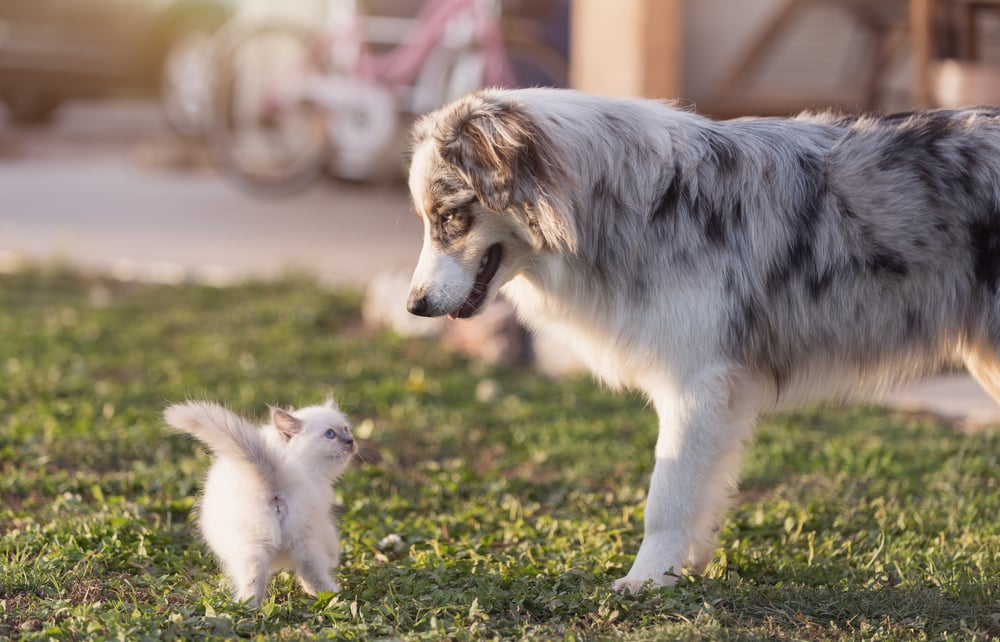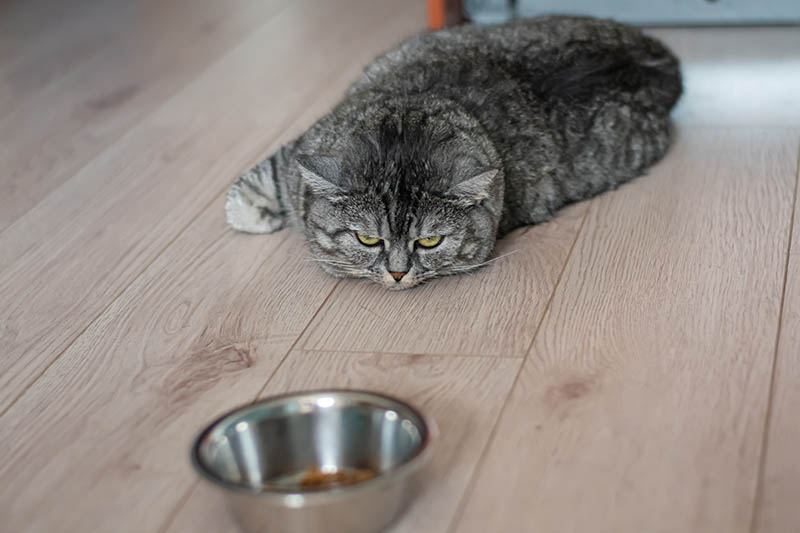Click to Skip Ahead
Parrots are pretty noisy creatures, but that can be a good thing. They’re known for their intelligence and ability to mimic sounds from the outside world. However, sometimes they do it when you don’t want them to or in an annoying way, like when you’re trying to sleep at night! So why do parrots scream?
In this article, we’ll go over eight reasons why parrots scream and how to stop it. Whether you have one parrot or six of them, this article will teach you what causes parrots to scream so that your home is more peaceful.

How Do Parrots Scream?
Singing and screaming are distinct behaviors for parrots. By definition, singing is voluntary and involves a melody. Screaming, on the other hand, is involuntary and usually negative.
Some parrot species are known for having unique screams. When you hear them in real life, it’s much more sad than annoying! That’s because we don’t expect birds to shriek like that.
The 8 Reasons Why Parrots Scream
1. Sadness or Boredom
Parrot’s screams are often the result of sadness or frustration. The bird may be longing for more attention from its owner, trying to get out of a cage, or waiting for its next meal. Sometimes, birds just want some excitement in their lives. It’s a well-known fact that parrots can become depressed. If you’re too busy to give your pet all the attention that it wants, at least make sure there’s another parrot in the house!
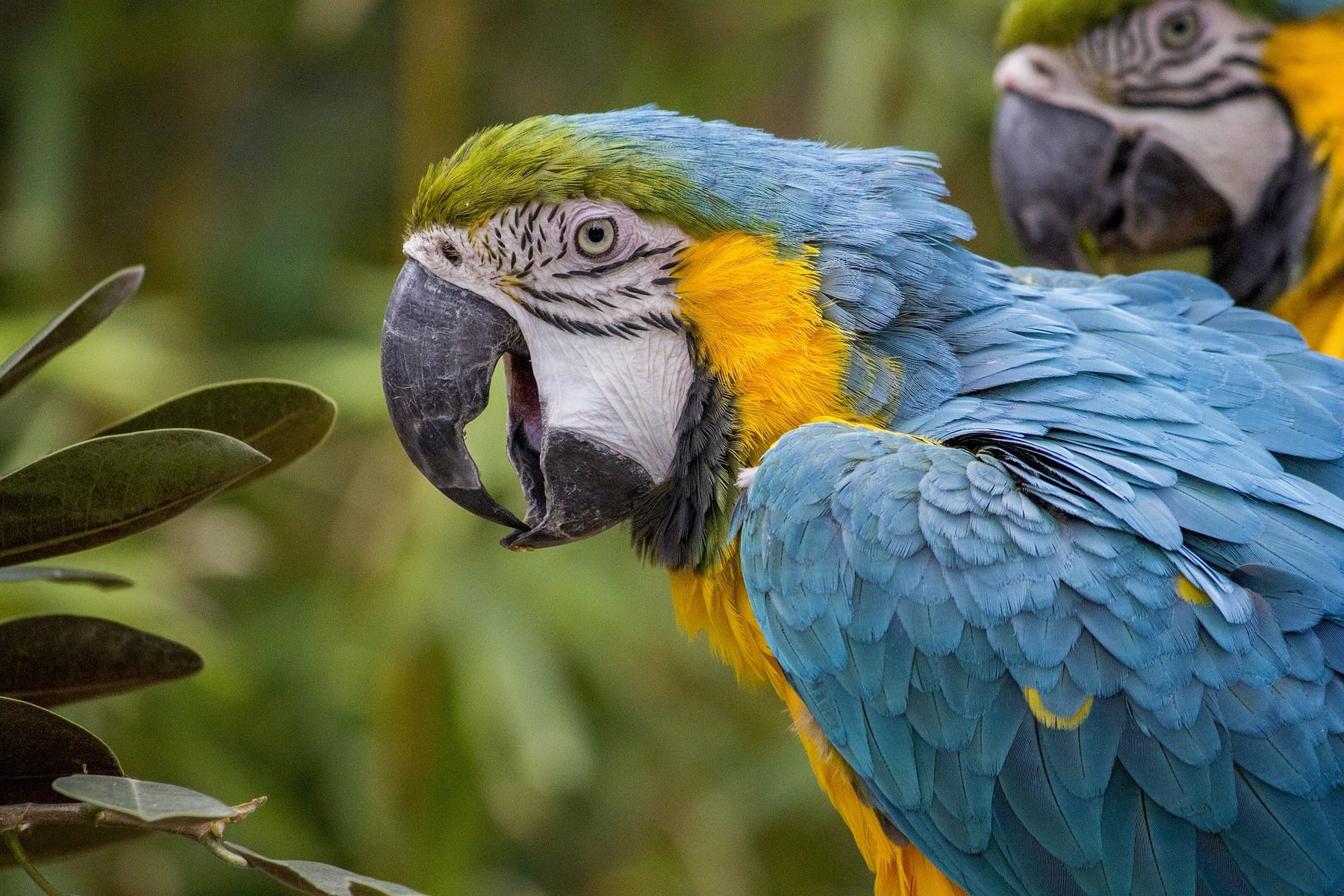
2. Parrots Are Calling Their Babies!
Some birds (such as African grey parrots and macaws) are known for screaming when they find their babies. It’s a serious business for these birds, and they make a peculiar noise for it.
If your bird is a parent, you might have to get used to this terrible sound.
3. Aggression or Lack of Trust
Parrots known for their distinctive screams are also usually known for being feisty and aggressive. The primary cause for this behavior is fear of predators. They have evolved to live high in the trees, where they can see threats approaching.
Another cause for screaming could be a general lack of trust in the owner or caregiver. Young parrots may imprint on their caregivers as parents, leading to aggressiveness toward other people. Don’t take it personally!
A parrot is likely to indicate its distrust when strangers are around with an ear-piercing scream. If the owner doesn’t intervene, the bird might even attack. If your parrot screams when it’s around other people or animals, consider getting another pet for it to play with.
Your bird is less likely to become fearful or aggressive with a companion in the cage.
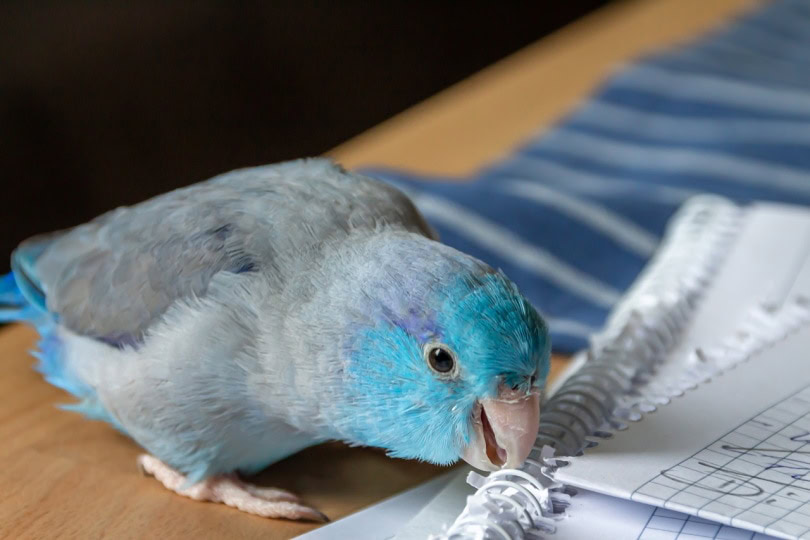
4. Not Enough Exercise
Parrots are energetic and need plenty of room to run around and build their muscles. If they’re sitting in a cage all day long, it’s natural that they’ll want to do whatever they can to get out!
If your parrot is screaming because you’ve forgotten to let it outside too many times, establish a schedule for when you let it out. Also, if you plan on training your parrot using positive reinforcement, be extra careful not to overwork the bird.
Parrots should fly around for at least a few hours daily. If your bird is in a cage on its own, consider moving it to a larger space where you can interact with it more.
5. Nervous Behavior
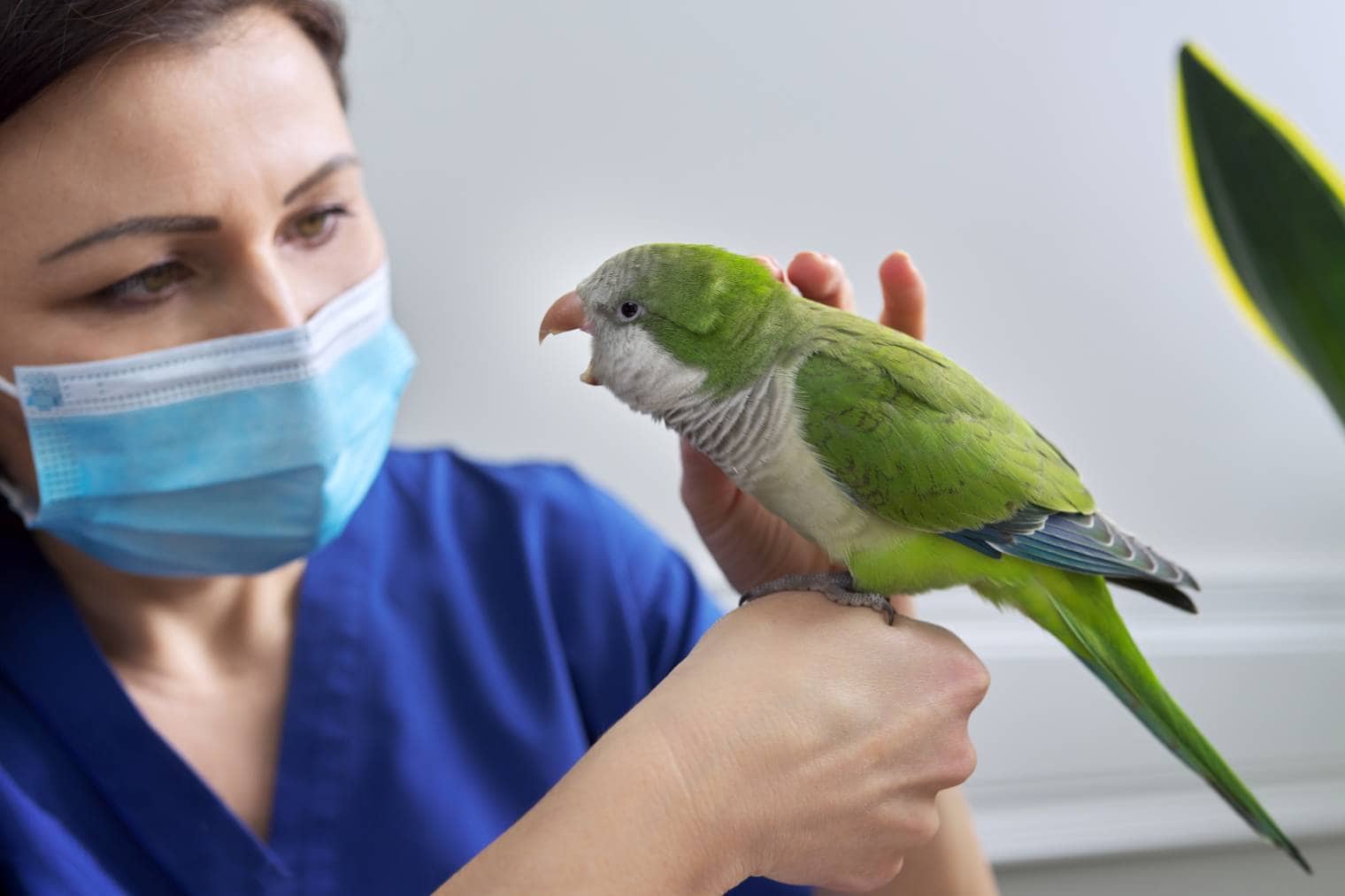
Some species, such as budgies or cockatiels, are known for their nervous behavior and general skittishness. A large, noisy room or a public place (such as a pet store) can frighten them.
Parrots will also scream if they feel confined and claustrophobic. You should carry your parrot in an open-handed manner so that it can see everything around them.
6. Hunger or Thirst
Parrots that are hungry or thirsty will assume that you’re ignoring them! After a while, they’ll start screeching their heads off to get attention from you. If your bird is screaming because it’s getting too hungry to wait any longer for dinner, give it plenty of food and water during the day.
If this doesn’t solve the problem, try changing their feeding schedule.
7. Is It Time for a Bath?
It’s best to bathe birds using warm water. Sometimes, you might want your parrot to get used to the idea of bath time, especially if it hates getting wet! You can try putting only a small amount of warm water in its cage.
As soon as the bird gets wet, remove it from the cage and start bathing it immediately. This will ensure that bathing has no negative associations—just positive ones!
If your parrot screams during a shower or bath, consider shortening the time it spends in the water.
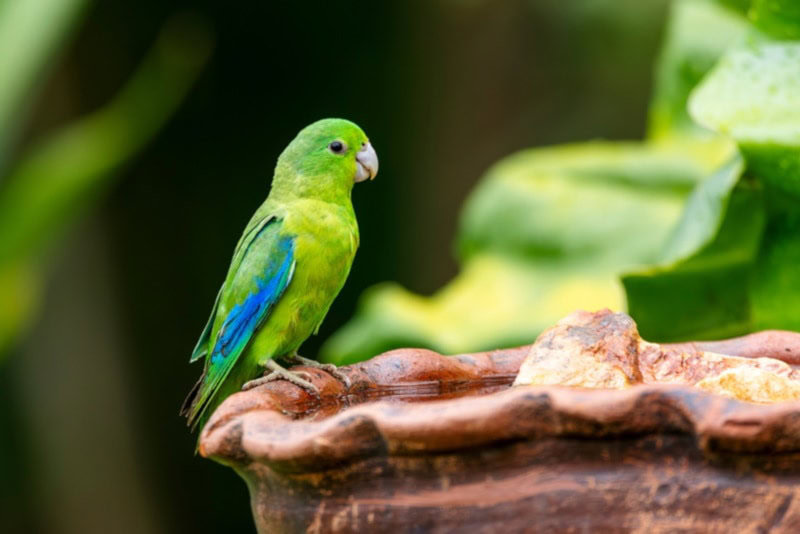
8. Fear
Parrots, especially larger ones like macaws, are not used to seeing flashing lights or hearing loud bangs. If slamming doors causes your bird to screech, it may be more accustomed to living with other birds (like chickens) than being around humans.
Try creating an environment where you can control the sounds and sights your parrot sees daily. Playing soft music or putting up decorations will make your home seem much more familiar and less scary.
If you’re still having trouble, consider talking to an animal behaviorist who might even be able to create an exceptional environment for your parrot that also makes it feel safe.
- Related Read: Why do Parrots Talk? 3 Main Reasons

How to Stop Parrot Screaming
You’ll also need solutions if you’re wondering why your bird is screaming so much. There are many ways to get your parrot to stop screaming, so it’s easier to start by explaining how not to do it. Scolding, hitting, or screaming back at your parrot will not work and will only hurt your relationship.
Sometimes, there may be a definite cause, such as the ones listed above. Other times, you may need to observe your parrot for a few days to determine why it’s screaming.
Here are a few things you can do to stop screaming when all else fails.
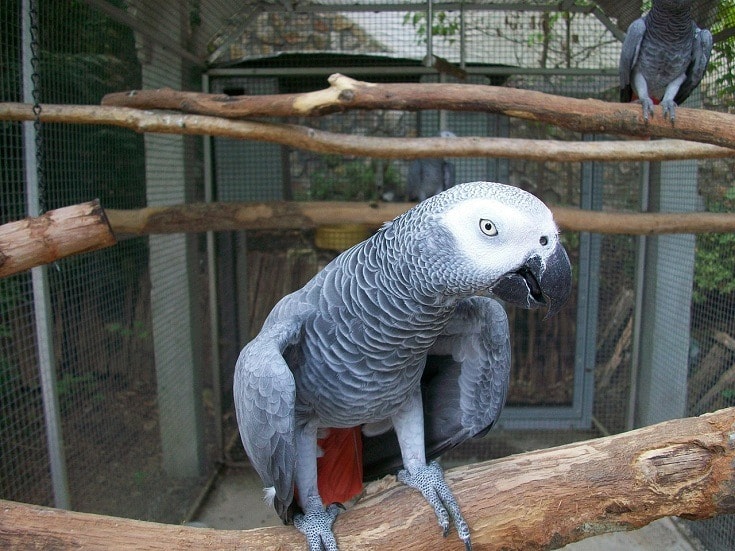
1. Take a Vacation
If your parrot is used to seeing you all day, it may get lonely if you’re gone for longer than an hour. It’s best to leave the bird with a friend who’ll occasionally hang out and talk to your parrot (or even take care of feeding time).
Parrots are smart enough to know that you’re not anywhere near them when you leave, so try taking an extended break from each other. This could help your parrot learn to be alone without screaming at the world!
2. Check for Medical Problems
Parrots can have various medical problems that may require medication. If your pet is continually screeching and nothing else seems to work, it might be worth speaking with an avian veterinarian about potential health issues.
3. Eye Contact
When a parrot sees a person’s face staring directly at it, it gets frightened. It doesn’t understand what’s happening, and sometimes, it can feel threatened! Encourage your guest not to stare at the bird and suggest that they turn their heads sideways so they seem less scary.
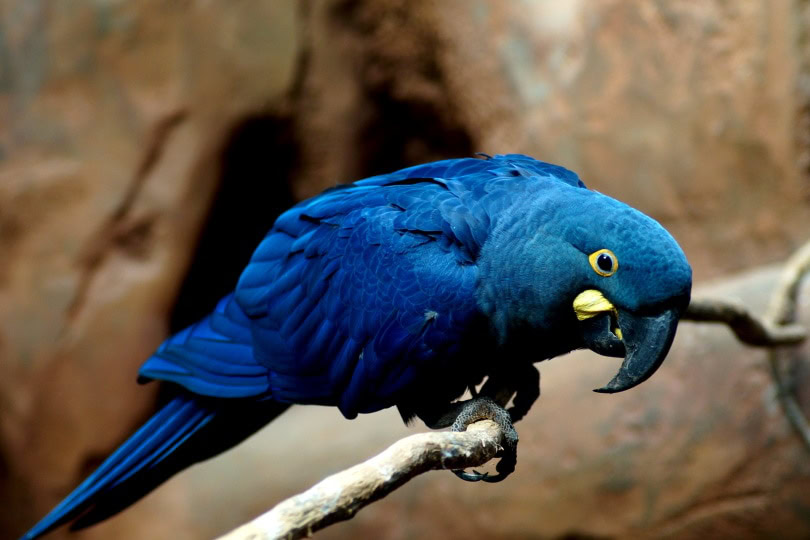
4. The Screaming Is Contagious
Your parrot may be mimicking a human scream. You can ask your family and guests to avoid screaming and work on a new word or melody you can teach your bird.
5. Noisy Toys
Sometimes, a parrot will scream from excitement when it sees its new toy or because of the constant noise that comes with some interactive toys. If you notice your parrot is screeching due to hearing squeaking noises, consider switching to wooden chew toys (or even cloth).
6. Consequence-Driven Training
If nothing else works, try using consequence-driven training on your parrot! Whenever you hear screaming, ignore it completely for at least a minute and see if your bird stops. When the bird is quiet, provide a treat, such as a piece of fruit. After several repetitions, your bird will learn that it’s rewarded when it’s not screaming.
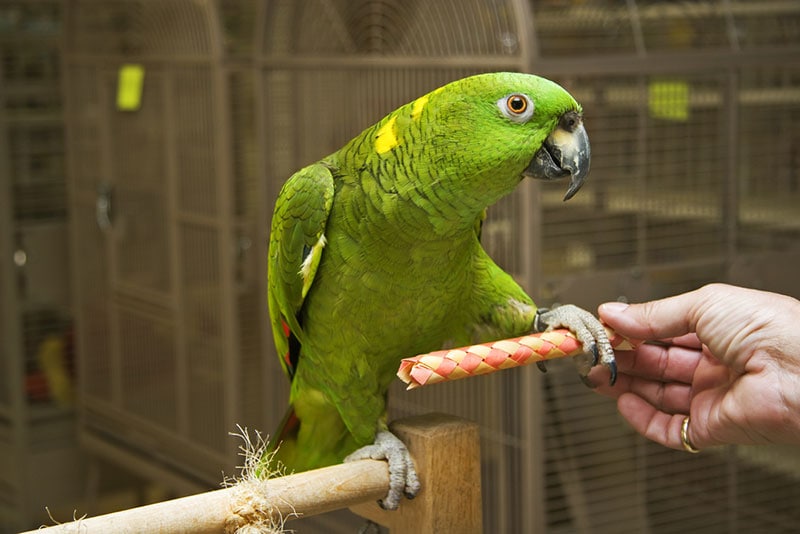

Final Thoughts
When a parrot screams, it’s often difficult to tell exactly why it’s doing so! You’ll need to observe your bird closely and test out new ideas until you find one or more ways that work well for your pet. If all else fails, don’t hesitate to take your pet to an avian vet. After an examination, they can provide advice about reducing the screaming.
With a little patience, you can stop the screaming and appreciate what makes parrots great pets.
- You May Also Like: Top 7 Quiet Pet Birds (With Pictures)
Featured Image Credit: Orapun Talalak, Pixabay
